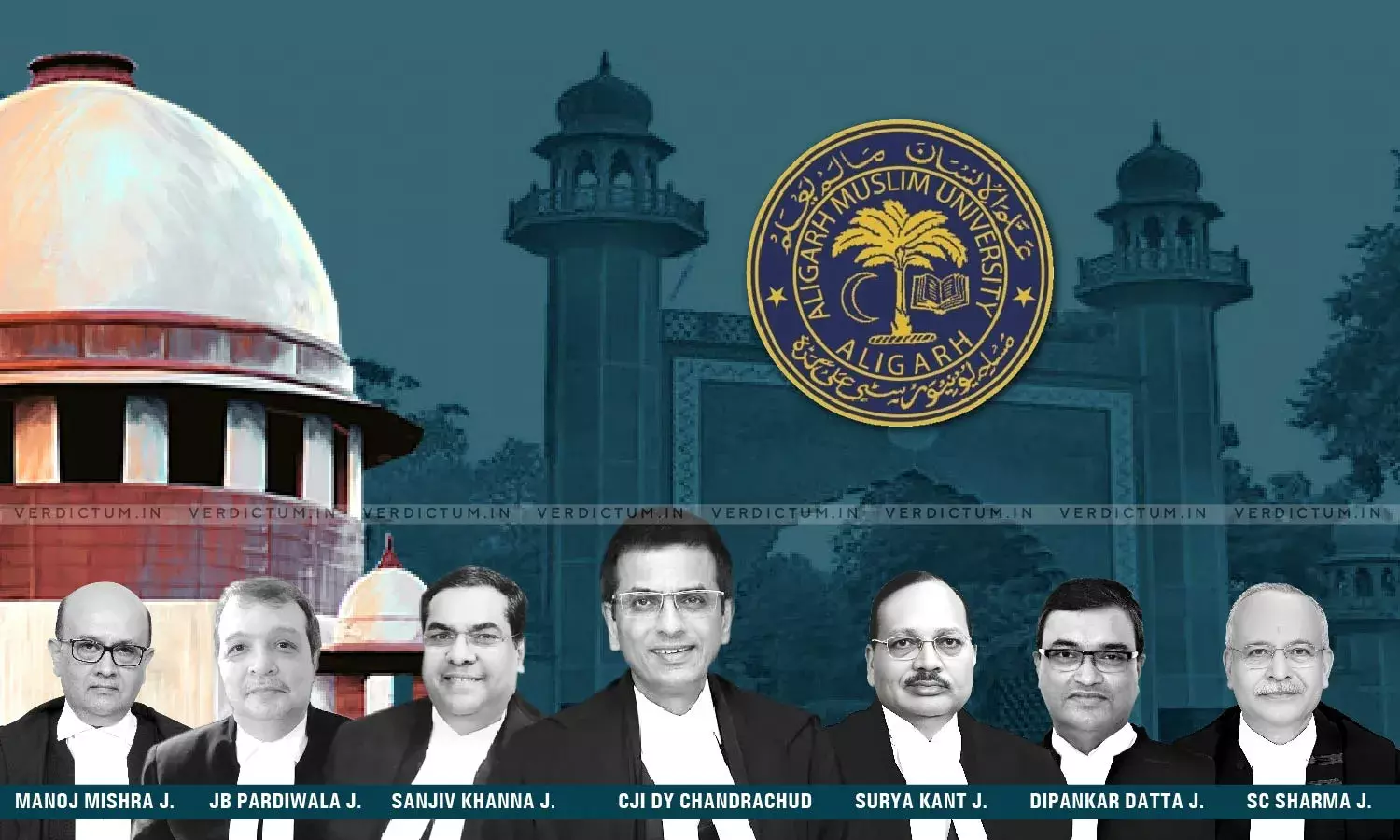Minority Should Mean Electoral Minority, Muslims Affect Electoral Outcomes And Hence Are Not Minority: Argues Senior Advocate Yatindra Singh In AMU Case

On the seventh day of hearing before the Seven Judge Bench in the matter pertaining to the minority status of the Aligarh Muslim University (AMU), Senior Advocate (Retd. Justice) Yatindra Singh (intervenor) in his submissions opposing the petitions contended that a "minority" means an electoral minority. According to him, a minority is a community that cannot affect the results of elections.
“What is the meaning of the word ‘minority’? Mr. Dwivedi has elaborated a lot. I must confess, it is a very novel way he put it. Your lordships will deal with it and treat it the way it deserves. But actually, to my mind, minority in Article 30 does not mean numerical minority, which is the general trend of this court. It means electoral minority. A minority that cannot affect any elections. Like, take up the case of Zoroastrians…”, he continued further.
Subsequently, CJI said, “But it will vary from constituency to constituency, since there may be some constituencies where you can certainly affect the elections…”.
“Democracy is a basic structure of the constitution. Lord Acton in his essays on freedom says, ‘most certain touch by which we judge that a country is really free is by the amount of security enjoyed by minority'…This is the reason why rights to minorities were given under the Constitution. Now if this is the case, then any minority which affects the election results, is not a minority under Article 30 but like take up the case of Zoroastrians....they are less than 1%, Buddhists are less than 1%, Sikhs are less than 1%, Christians are 2.4% they can’t affect any elections. Muslims in 2011 census were 14.2%. Their population growth is the highest. My Muslim friends, when I talk to them ....they say now we have become 23%. So they as Muslims as a minority affect the elections”, Singh submitted.
“So if Bhinderanwale was a creation of Mrs Gandhi, then Owaisi is the creation of BJP”. They want to divide the Muslim vote. Wherever they come together, they win", he submitted.
However, the statement was opposed by the CJI saying, “We will not steer away from the area of constitutional law. Let's not comment on political personalities”.
“This Court is not competent to decide this question whether they affect any elections or not. That is why milords, I mentioned that your lordships may have some kind of a Commission to go into the question”, Singh submitted further.
Pursuant to which, CJI asked, “So according to you, Muslims are in a position to affect the electoral outcomes and therefore they are not a minority”.
To which, the Senior Advocate agreed and once again submitted that a Commission may be formed to determine minorities.
He concluded his submission by narrating an incident relating to French Mathematician André Weil. "André Weil was the greatest mathematician of the last century. He was impressed by Gita. During World War when all scientists were running away.. he was a Jew, he came to India... Schrödinger was supposed to India- he got appointment in Allahabad University and André Weil unfortunately got professorship in Aligarh Muslim University. Now he was impressed by Gita, India was a land of promise, he always used to quote Gita... and unfortunately, he was trapped in AMU. AMU had an atmosphere which was, let's say anti-Hindusim... He went back. He left AMU embarrassed. Had he been here, AMU would have been Prinston, AMU would have been Stanford and India would have been producing one of the finest mathematicians and we lost that".
The Seven Judge Bench hearing the matter comprises Chief Justice DY Chandrachud, Justice Sanjiv Khanna, Justice Surya Kant, Justice JB Pardiwala, Justice Dipankar Datta, Justice Manoj Misra and Justice Satish Chandra Sharma.
Yesterday, Senior Advocate Rakesh Dwivedi appearing for a respondent contended that Muslims were not a "minority" before Independence. He told the Supreme Court that it is time to define the word "minority", which is not defined in the Constitution. He proposed a test to determine who could be treated as a "minority" before independence and the adoption of our Constitution.
Earlier, the Constitution Bench heard heated arguments on whether a law officer can argue against a law made by a Parliament. During the arguments of the Petitioners, Advocate Shadan Farasat appearing for petitioners argued that if the University ceases to be a minority institution, then that would hamper the education of Muslim women in India. Solicitor General Tushar Mehta objected to the argument saying that it belittles Muslim women. Senior Advocate Kapil Sibal appearing for a Petitioner (Old Boys Association), previously argued that since the minority community could not have been empowered through reservation, there was no other way to give an opportunity to those left out, except through Article 30.

